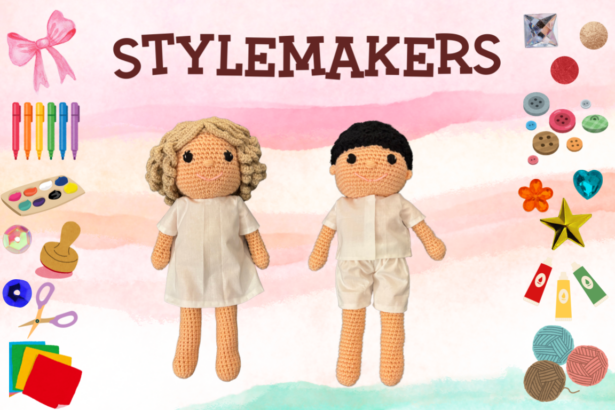*Instead of being asked “What is your Passion” and not knowing what to answer, we DESIGN our own passions. *
- Description
- A 6-week Social-Emotional Learning Workshop series designed for a group of 25 Chinese teenagers aged 13-18. Learning about frameworks and topics from design thinking to brain and learning sciences, negotiation to habit formation, by the end of this 6-week session, students will design their own passion project and culminate in a presentation of this project in the final class.
- Learning objectives:
- That students will understand the design thinking framework both from a practical level and a theoretical level, and will be able to apply it in their own contexts
- By the end of this workshop series, students will have an MVP version of a passion project that they designed for themselves.
- Enhanced understanding of the sciences and practice of learning, habits, motivation, and negotiation with reality to facilitate their own learning journey
- Context
- The idea stemmed from multiple conversations I had with my peers, KB, and my previous teacher Yi whom I’ve been studying and working with since my adolescent years.
- Yi is a private educational institution founder based in Nanjing, China, who developed a whole series of socio-emotional learning(SEL) curriculum to help guide teenagers navigate their lives better. Her curriculum covers topics such as how to learn better – stress management and self-regulation, effective communication and problem solving, organization, planning, and goal setting, and how to navigate through their social, interpersonal life better – relationships with family/parents, school, friendships, intimate relationships, and self.
- I finished the whole curriculum as a student from elementary school to high school (8 years), and then went on to work as a Teaching Assistant at the end of my high school years and into college years. When brainstorming for a more specific landing point of this learning design project, I thought of this formative journey I had with Yi and her mention of the frustration she encountered when trying to move the course online during the pandemic, especially lockdown times.
- Importance of SEL for Chinese Teenagers
- With the increasing pressures of the competitive education system and the demanding expectations within the family and society, teenagers often grapple with stress, anxiety, and societal expectations. During the COVID-19 pandemic in China, more than one fifth of junior high and high school students’ mental health was affected (Zhang et.al, 2020). A well-designed SEL curriculum can empower Chinese teenagers with essential skills like self-awareness, emotional regulation, and interpersonal communication, enabling them to navigate these challenges more effectively. Furthermore, as China’s economy continues to advance, the need for a workforce with strong interpersonal skills becomes imperative. SEL not only addresses the current emotional state of teenagers but also contributes to the cultivation of a more emotionally intelligent and socially adept generation, aligning with the demands of an evolving job market.
- Format
- Hybrid with students and facilitator in classroom, instructor being online
- This workshop series is a pilot series, embedded in Yi’s regular Fall semester classes. The original fall curriculum will be over the time frame of one semester, with one class every week, and each class being 3-hours long. During these 6 weeks, I took over the last 1 hour of every class and delivered my part of the class. Up until Nov 26, 5 sessions have been finished.
- Theoretical Framework and Practice
- 1. Constructivism
- Support in class:
- Foundation: Psychological Safety + Trust
- Addressing in the first class who I am, where I come from, why I am here.
- Establishing (online) trust through remembering names.
- Format: Online instruction + in-class peer interaction and discussion + in-class facilitation
- Norms: first 10 min of weekly news-sharing + last 10 min of Large class reflection and discussion
- Physical Movement: change of seats during the 4th session
- Foundation: Psychological Safety + Trust
- Support outside of class:
- providing feedback to reflection and assignment + weekly chat hour
- Support in class:
- 2. Online/Hybrid Learning and Teaching of SEL
- This project is a tryout to hybrid/online SEL education as the format of the class is hybrid. I chime in from online, while the students and facilitator gather in the classroom, which is a familiar setting to them and an easier approach to make social interactions happen.
- 3. Informal learning space
- While class happens on Friday night, I have been offering an optional chat hour with students on Saturday nights, holding space and time for more intimate and personal conversations to take place.
- Student Feedback: “I love this time because I am able to chat and talk about some stuff on my mind that I did not have a chance to bring up elsewhere in my life… Also having peers to discuss about them together, it’s amazing.”
- While class happens on Friday night, I have been offering an optional chat hour with students on Saturday nights, holding space and time for more intimate and personal conversations to take place.
- 4. Self-Directed Learning + Project-Based Learning
- Students will create their own MVP (Minimal Viable Product) of a passion they decided to develop, and have a chance to showcase what they have been working on and collect their peers’ feedback by the end of the 6-sessions workshop.
- Learning through actions and creating.
- 1. Constructivism
- Curriculum Structure and Timeline
- Week 1, Oct 20: Debunking Passion: What Is It Really?
- Week 2, Oct 27: Setting Your Own Goals + What is Hindering Me?
- Week 3, Nov 3 : Motivations
- Week 4, Nov 10: Learning to Negotiate
- Week 5, Nov 17: Habits: From Initiation to Iteration
- Week 6, Dec 1 (planned): It’s Your Turn! Showcase of Project
Reflection:
- This pilot experimentation of online SEL allows me to understand multiple things:
- Online instruction and facilitation can deliver the knowledge transfer part, but the in-person experience (eg. peer interaction, classroom. etc.) cannot be replaced.
- While it is doable to carry out classes like such, the online format seems to fit long-term, 1-1 mentorship relationships better as the limitation of capacity
- Facilitation is important. During class activities, the facilitator providing simple and clarifying guidance and examples is crucial to get the students started thinking, creating, and discussing. After lecturing, students usually need another light push to lean forward and get started on their own work.
- Providing feedback and recap will motivate students to engage more: Mentioning those who have been coming to chat hours and submitting reflections to the class in the next class motivates those who didn’t come before to join and discover what they have been missing out.
- Keeping an online presence and holding a virtual community after class is crucial.
By taking theories into practice, I encountered many more unexpected situations, like technology difficulties in the classroom, managing to prepare a 1-hour class among all other things every week, establishing trust in a virtual space, engaging with students in online instruction, etc. But I also gained invaluable practical experience in overcoming the obstacles of initiating and iterating through an actual program, as well as very pure and bright energies from my students! Hearing them talk about their lives, schools, worries, and laughs makes me so genuinely happy and motivated from the bottom of my heart.
Citations:
Zhang, C., Ye, M., Fu, Y., Yang, M., Luo, F., Yuan, J., & Tao, Q. (2020). The psychological impact of the COVID-19 pandemic on teenagers in China. Journal of Adolescent Health, 67(6), 747-755.
Boudreau, E. (2021) Harvard Graduate School of Education. Let’s Not All Make the Same Thing. Usable Knowledge. https://www.gse.harvard.edu/ideas/usable-knowledge/21/12/lets-not-all-make-same-thing



